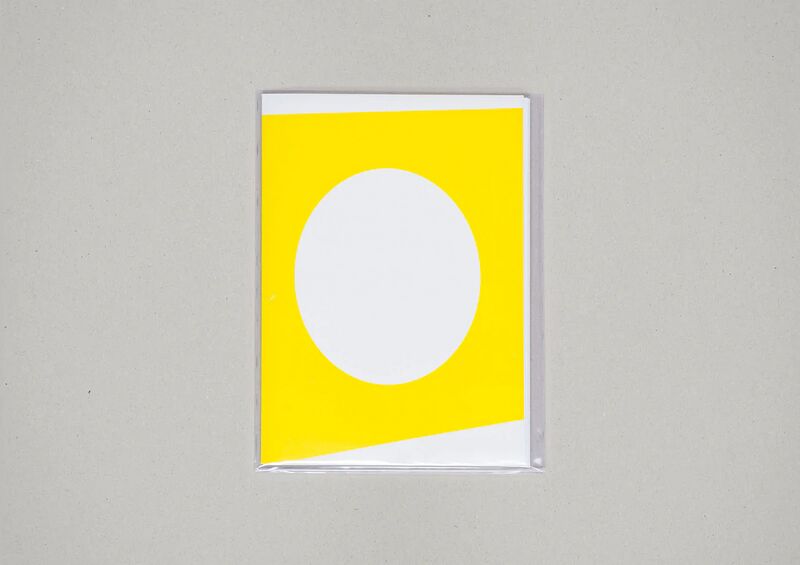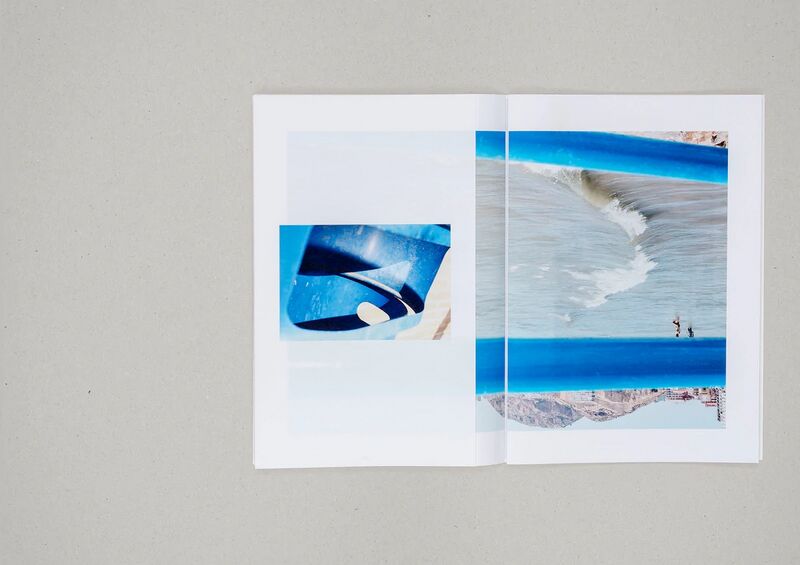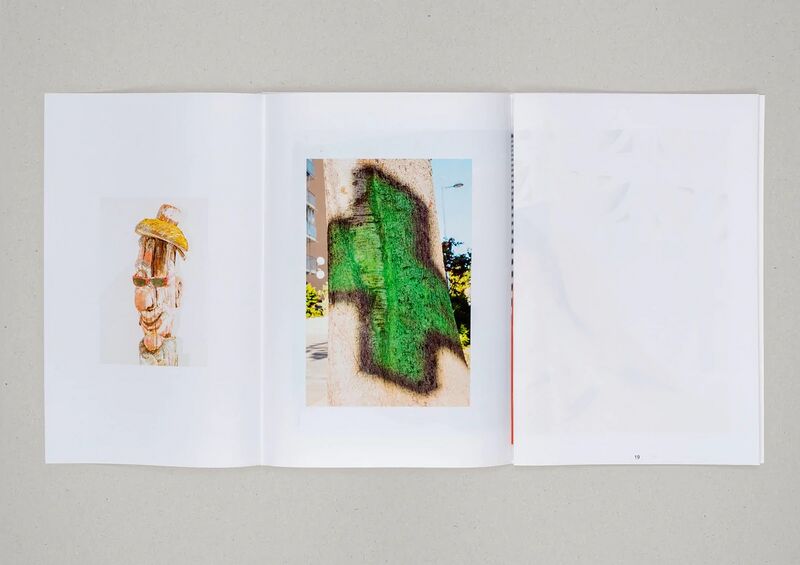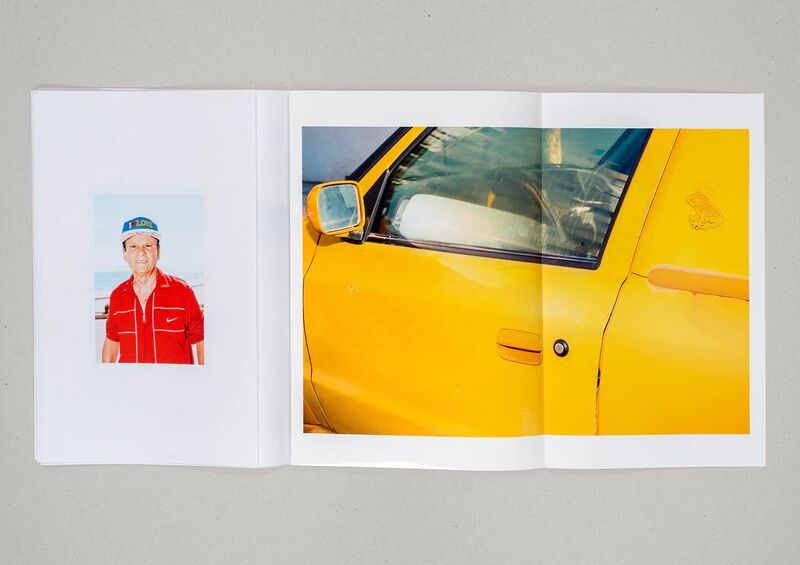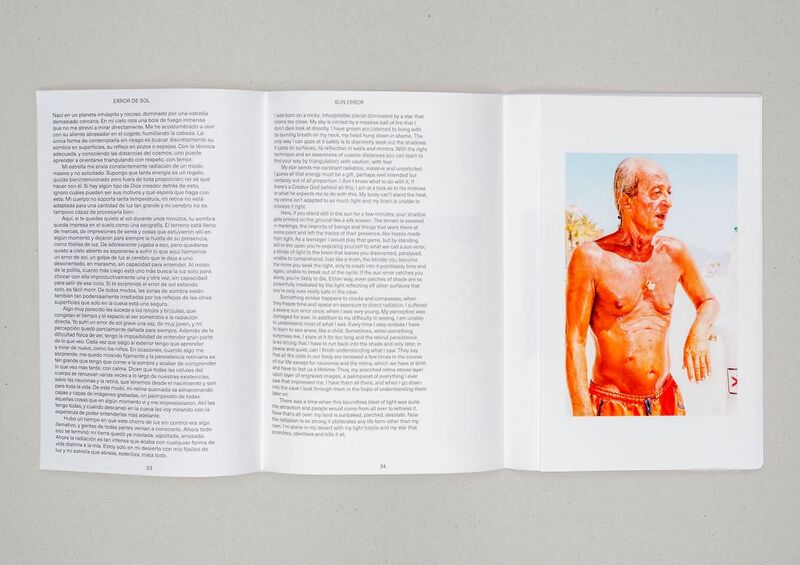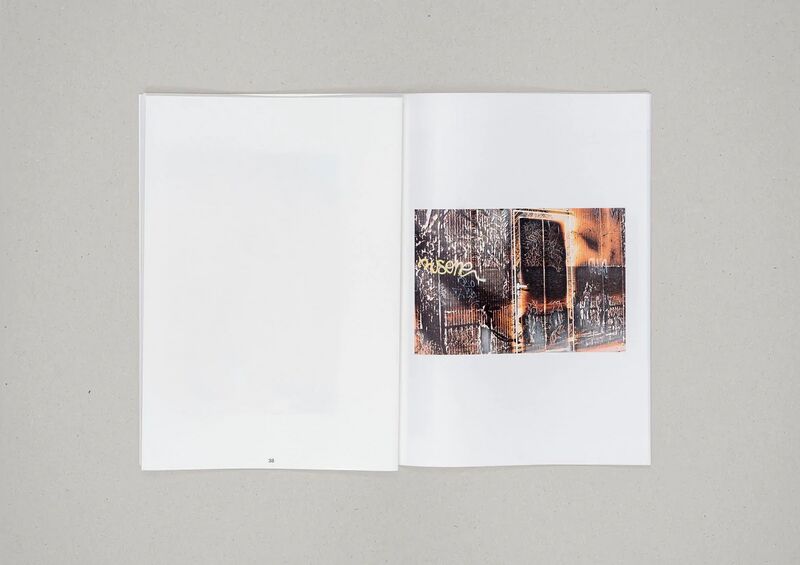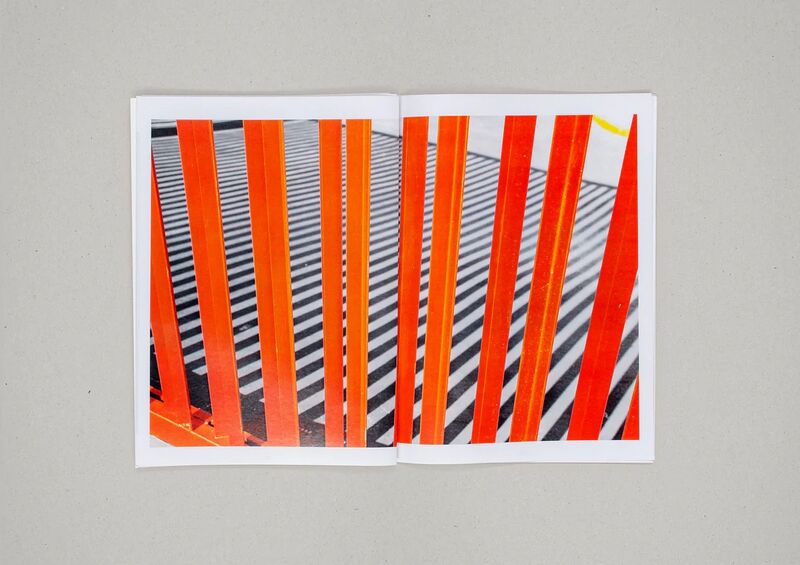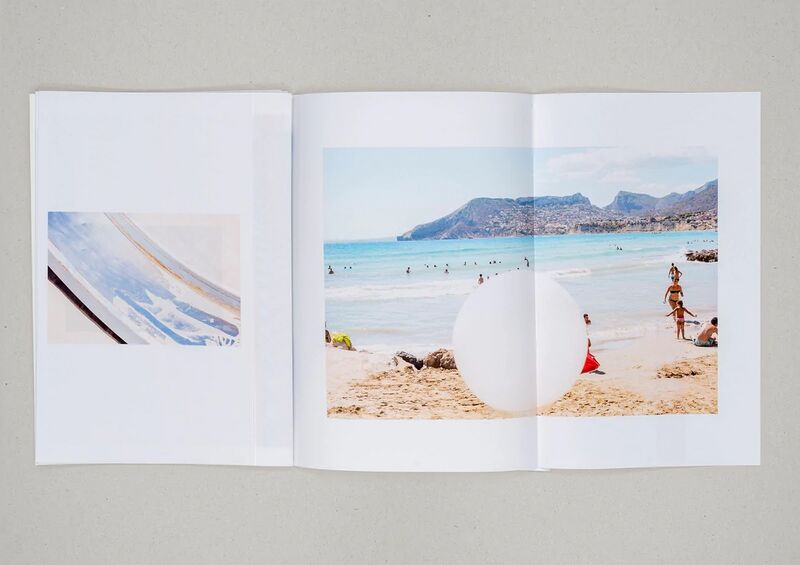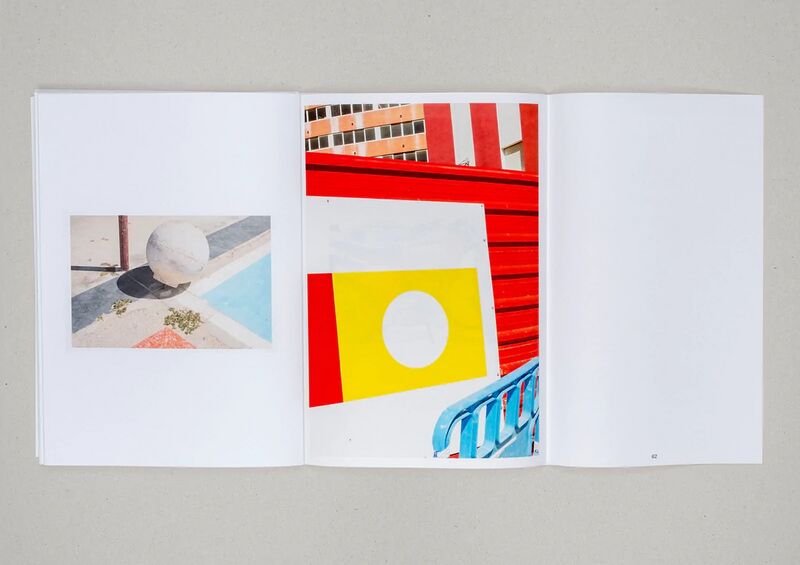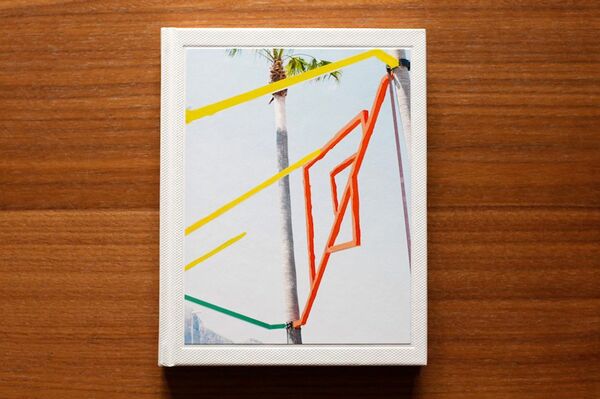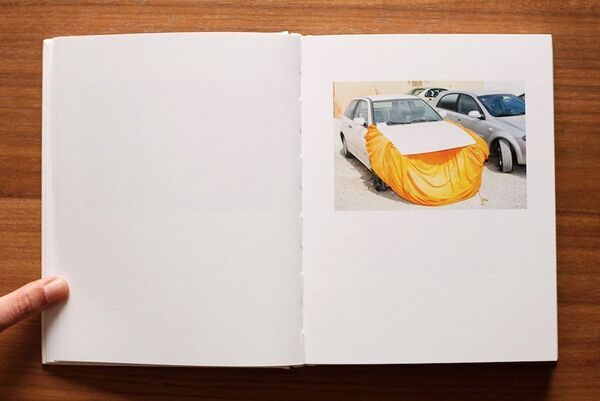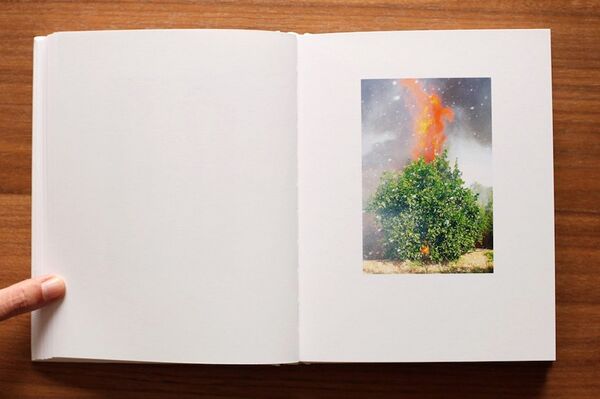Thematic History & practice of the photo-essay & photo book Aitana
Analysis of a photobook: SOL - Ricardo Cases
Facts and form
| Title | SOL | ISBN | 978-84-697-8268-2 |
| Photographer | Ricardo Cases | Legal desposit | M-34386-2017 |
| Text | Luis López Navarro | Size | 21 x 29,7 (A4) |
| Translation | Aitor Arauz Chapman | Price | 20,00 E |
| Design | Ángel Álvarez (Tipped Office) | Number of pages | 68 |
| Publisher | Dalpine* | Number of images | 33 |
| Year of publishing | 2017 | Language | Spanish and English |
| Prepress | La troupe** | Hardcover or paperback | Softcover |
| Press | Grafilur*** | ||
| Colour/Black&White | Colour | Binding | Loose bound |
| Sleeve / Obi / Box / etc | Transparent sleeve | Edition | 1 |
# Overall design - Softcover (29,7 x 78 cm) with front cover and back cover with technical aspects - Content consists of 9 booklets/signatures: 29,7 x 60 cm (x3), 29,7 x 78 cm (x6)
# Sections (table of contents, foreword, chapters, literature, register etc.) - Not divided into sections, but consists of a display of images and a text in the central booklet. - Could seem a chaotic and anarchic succession but it has a plastic and visual logic
# Lay out of images on the page Depending on their size, they can be divided into two types: - The small ones, in vertical or horizontal arrangement, fit in a A4 format. - The large ones cover almost the whole of an A3 and each half is printed in a different booklet/signature, so that the halves can also become single images.
# Montage, narrative - Simple and accessible in appearance. - There is a playfulness in reading the book about the covered/uncovered - When turning the page there is usually a part of the image that is not seen, so it is necessary to unfold the next fold in the opposite direction to see the whole photograph. - This generates a kind of rhythm in the reader. - This formal game is closely related to the nature and the content of the photographs.
# Text, relation image-text, captions - "Literary reflections" by Luis López Navarro. He worked with him before in "El porqué de las naranjas" - Text as a companion (not as explanation)
Overview
Content and context
# Subject or theme (meaning, relevance) Ricardo Cases investigates the cliché of the Levantine coast. Approaching his work as if it were a child's game that consists of representing the sun, he immerses himself in the blinding light of the Levantine summer, searching for its essence, allowing himself to be carried away by sensations and questioning how the sun determines identity, aesthetics and the local economy (text from description in La Fabrica).
- «Podría considerarse mi trabajo como una crónica sentimental del lugar donde vivo»
- "Although it sounds corny, my work could be considered a sentimental chronicle of the place where I live, that is to say, although my tool is reality, my photos are full of personal whims in both form and message. The books have been a liberation from my professional work. I found a way to commission myself, to use my own medium, for better or worse. I consider myself lucky to have the support of spaces like Ángeles Baños or publishers like Dalpine."
- "The idea is very simple, I set myself the challenge of telling the story of the sun in many ways. It is an exercise in representing a motif, a symbol that notably conditions the way of being and living in a place. The intention, once again, is to tell this place in another way, with other resources."
# Photography (documentary, journalism, portrait, art....) Art / documentary? to be discussed
# Type or purpose of the publication (information, political statement, opiniating etc.) ?
# Publisher and/or commissioner (ideology) ?
# Other books on similar subject; other books by the same photographer/writer - El porqué de las naranjas: A series of photographs in which Ricardo Cases takes oranges, the symbol of Levante, as a starting point to create a narrative line that helps him to capture the idiosyncrasy of this place. Orange is here the common thread, and also the tool, that serves to capture scenes of the aesthetic, political and economic landscape of this territory. Light and colour, so important in Cases's photography, share the limelight in this series with the absurdity and humour that emerge from the images.
# Background photographer Ricardo Cases was born in Orihuela (Spain) in 1971. Lives and works between Madrid and Valencia. Degree in Journalism by the University of The Basque Country. In 2006 he joined the Blank Paper Photography Collective. In 2009, he launched Fiesta Ediciones, a publishing house specialized in photography books. He had a lot of collective and solo exhibitions and also few awards mainly in Spain. He is also a teacher. He is presented by: - Galeria Angeles Banos (Madrid, SPAIN) - Espace JB (FRANCE) - Temple Paris (SWITZERLAND) - Dillon Gallery (USA) In recent years, the photographic work of Ricardo Cases has focused on portraying the particularities of landscape, the precise impact that human behaviour has on it and, consequently, the nature of the people that inhabit and modify it.
# Way of promoting and # way it is financed (money source) - Gallerys - Exhibitions in Matadero Madrid (cultural space) ((Founded in 2010 in Madrid, Dalpine is a publishing house that encourages collaboration between photographers, artists, designers and editors to produce limited edition books. Dalpine also supports the dissemination of photographic and artistic works through exhibitions.)) (Delpine.es)
Press:
-
# Limited edition ?

